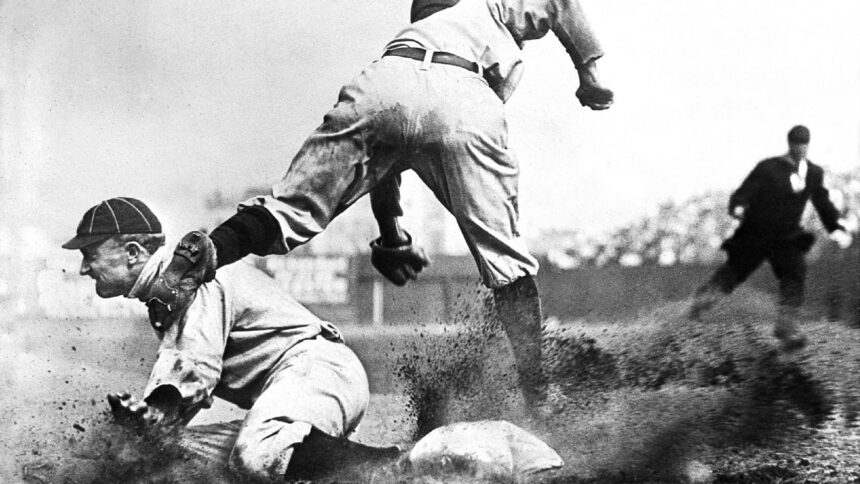The backlash from Major League Baseball’s announcement last week that it was absorbing Negro League statistics into the game’s official historical record was almost immediate in a Facebook fan group that Cindy Cobb helped nurture.
Cobb, 67, is the granddaughter of Ty Cobb, the baseball legend and lifetime .367 hitter who is displaced in the new record book as MLB’s career batting average champion by Negro League great Josh Gibson, who hit .372 for his 16-year career. Gibson is also MLB’s new leader in on-base plus slugging percentage (OPS) and slugging percentage, replacing Babe Ruth. The changes were more than many people in the 2,600-plus member Official Ty Cobb Fan Group could abide. They railed against them in their private Facebook fan group, Cobb said. The critics argued that Negro League statistics were unreliable, their stars played fewer games and went up against inferior competition.
“This action is by far the most drunken farce that I have ever witnessed in professional sports,” a person identified as Wesley Fricks, a self-described Ty Cobb historian who controls the fan page (recently renamed Official Ty Cobb Legacy Group), posted on Ty Cobb Athenium, another Cobb fan page, shortly after the MLB announcement.
Cindy Cobb fought back, arguing in her posts that her grandfather, who was in the Hall of Fame’s inaugural 1936 class, would have embraced the changes. She added that it was undeniable that ballplayers from the Negro Leagues enjoyed few of the privileges afforded her grandfather. For that, Cobb asserted, she was kicked out of the group on June 1 — three days after the MLB announcement.
The swift, negative reaction on social media underscored the unwillingness of some fans to recognize updated statistics as one way of righting the segregationist wrongs of the past. Whether they are representative of a larger segment of society remains unclear, but the fact that they were so willing to state their views openly — and retaliate against someone offering an opposing view — suggests there is lots more work to be done.
Cindy Cobb neglected to make copies of her posts but did manage a screenshot of one of the sharp responses she received.
“So, some nitwit loser who was willing to support giving away Cobb’s hard-earned titles due to Wokeness, got the boot,” wrote one member. “Good riddance.”
The fan group’s postings are closed to outsiders, so there was no way to know which way the conversation went after she was blocked.
Cobb, who lives in New York state, said she was left wounded by the reaction. “I made a post speaking to the inequities of the past, saying that because my grandfather was a white man playing in the MLB, he had opportunities that Black men did not have,” she said in a phone interview. “Then I was harassed and verbally abused.”
Fricks, who Cobb said is administrator of the Facebook page, did not respond to several requests from ESPN for comment.
Cobb said the vitriol has been painful to endure. She had worked for years to support the Facebook group, in part to broaden the image of her grandfather, who is widely remembered as a dirty ballplayer and virulent racist, which Cobb and others call inaccurate. Those who are using her family’s name to voice their displeasure with adding Negro League statistics to the baseball record books, Cobb contends, only serve to bolster what she calls an unfair memory of her grandfather.
“I’m really disgusted with the way people are receiving this,” Cobb said. “It just isn’t who we are as a family.”
Despite Ty Cobb’s tremendous on-the-field achievements, his legacy has been marred since his death in 1961. He was said to be hated by teammates and opponents alike, a violent brawler on the field who would sharpen his spikes to a razor’s edge to injure fielders who tried to tag him out on the base paths. Ken Burns’ epic 1994 documentary series “Baseball” summed up the prevailing view of Cobb, calling him an “embarrassment” to the sport.
But Cindy Cobb believes her grandfather’s off-field legacy has been unjustly tarnished, a point of view echoed in “Ty Cobb: A Terrible Beauty,” a well-received biography by Charles Leerhsen, published in 2015.
The book debunked some of the most horrible stories linked to Cobb, including that he pistol-whipped and otherwise assaulted several Black men simply because of the color of their skin. Cobb had praised early Black baseball stars, including Hank Aaron, Willie Mays and Roy Campanella. He also spoke in favor of the integration of the sport in 1952, five years after Jackie Robinson had broken the color barrier.
“The Negro should be accepted wholeheartedly and not grudgingly,” Cobb told the Sporting News in 1952. “The Negro has the right to play professional baseball and who’s to say he has not?”
Cindy Cobb said that is the part of her grandfather’s character that she wants more baseball fans to appreciate. “Let there be no doubt that he applauded the achievements of all players,” she wrote on her own Facebook page.
The move by Major League Baseball to revise its record book has been applauded in some quarters as giving long-overdue recognition to more than 2,300 Negro League players who played an outstanding brand of baseball while being banished from the majors because of their race.
Some saw it as particularly satisfying that Ty Cobb, a son of Georgia who has carried the baggage of his state’s racist past, was being supplanted atop some of the most significant records by Gibson, a Black native of Georgia.
But others have raged online, calling the move evidence of good intentions and even political correctness run amok.
“If MLB is opening the door to include the Negro League statistics, then MLB, in the name of diversity, equity and inclusion, must also include statistical records from Japan, Korea, Mexico, and other Latin American leagues,” read a post on Ty Cobb’s Legacy — Time to Right a Terrible Wrong!!!! a Facebook group with more than 12,000 members.
Another person posted: “Games played. Cobb 3034. Gibson 602,” suggesting that Cobb’s sustained record over a far longer career justified denying Gibson the top spot.
A third post, read simply, “MLB — woke GARBAGE.”
Asked about fans sharing that type of sentiment under her grandfather’s name, Cindy Cobb sighed. Then after a moment, she said: “My mother is 93, and she’s the last remaining Cobb of her generation. And I shared a little bit of what was going down. You know what she said to me? ‘Everybody, just get over it.'”










